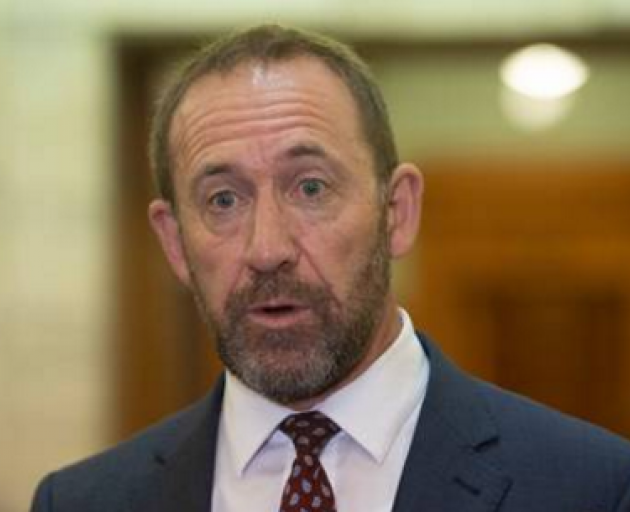
Rehabilitation inside prison will be the “game-changer” to reduce the inmate population, Justice Minister Andrew Little says.
Speaking on Newshub Nation today, Little said bail, parole and sentencing laws would all be looked at as the Government seeks ways to contain the ballooning prison muster.
“We will have to have a look at the Parole Act, the Bail Act. We’ll have to look at the sentencing council idea and get some cohesion around our sentencing.
“But I think the real game-changer is going to be what we can do inside our prisons, and how make it systematic across the prison network, not just leave it up to individual prison managers who through managing their budgets and tweaking things here and tweaking things there, can do initiatives that have a good impact but a small impact.
"We need to be doing that stuff network-wide,” Little said.
Little was last week forced to put off a plan to repeal the controversial “three strikes” law after Government coalition partner New Zealand First said it would not support the move.
Little said there were other things that would have more impact on reducing the prison population than repealing the three strikes law.
“It could make some difference but actually there’s bigger gains through other changes that need to be made. So we’ve got to have a look at the whole range of things. It’s not just what the laws are … it’s actually what we do in the prisons.”
The Government has pledged to reduce the prison population by 30% in 15 years, but with forecasts that it could reach 13,400 by 2027, Little said continuing with the status quo would require a new prison to be built every two to three years.
Last week, Corrections Minister Kelvin Davis announced the rebuild of part of Waikeria prison which would give Corrections a net boost in high-security beds of only 74.
Newshub Nation revealed that the Government has been told that in order to avoid stress on the prisons system and potential failure, it needed to reduce the prison population, currently sitting at 10,500, by a specific figure by the end of 2019, which was redacted from Official Information Act documents it had received.
Little would not pledge to release that figure publicly, saying he needed to look at why it had been redacted.
The minister said custody remands also needed to be looked at as a way to reduce the prison muster.
Remands into custody are driving the prison population up but Little said 41% of people remanded into custody ended up not getting a custodial sentence. Nine percent of the total figure were not convicted at all.
“We’ve calibrated our remand decision-making the wrong way. We are remanding too many in custody,” he said.
The criminal justice system had become too prescriptive, he believed, and suggested judges be given more discretion to consider individual circumstances so that issues that were the drivers of crime such as drug use and mental health issues were addressed before people went on to reoffend.
About 6% of people reoffended within two years of release.
“That 60 percent reoffending figure, that is a mark of failure of 30 years of criminal justice policy that says we’ll lock more people up and we’ll lock them up for longer.”
Little also resurrected Act’s proposal that prisoners could receive sentence discounts for programmes undertaken in jail. It is a policy that also been supported by the Howard League for Penal Reform.
“There’s got to be a way to incentivise inmates once they’re in prison to do stuff that’s going to change them, change their attitudes, their behaviours and minimise the risk of them reoffending on release."












